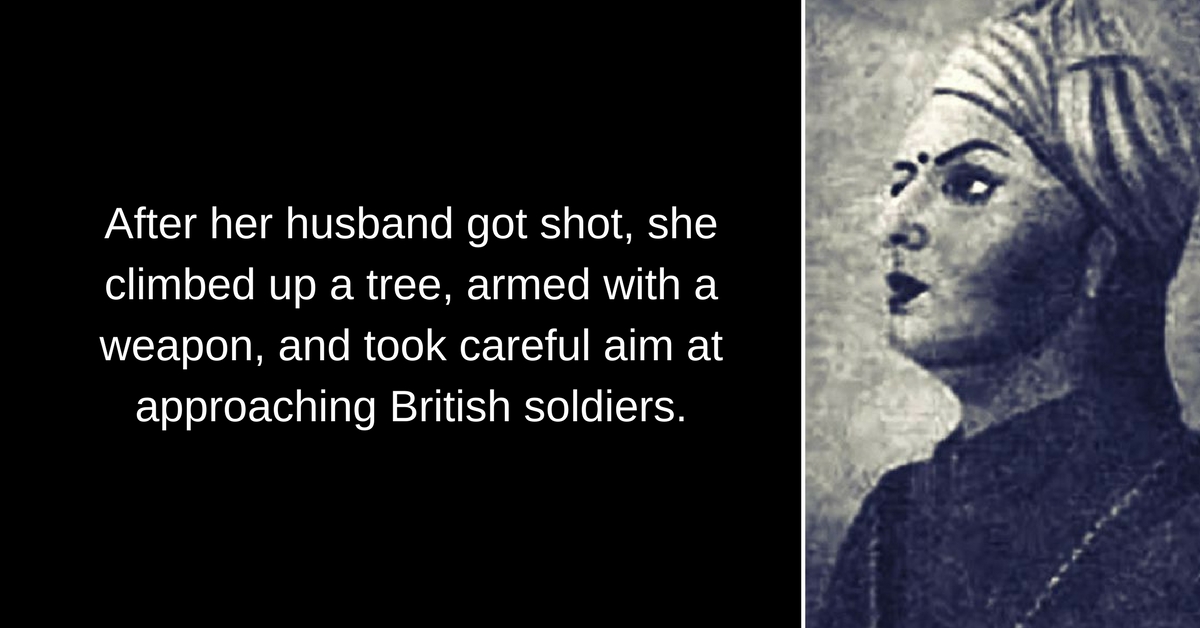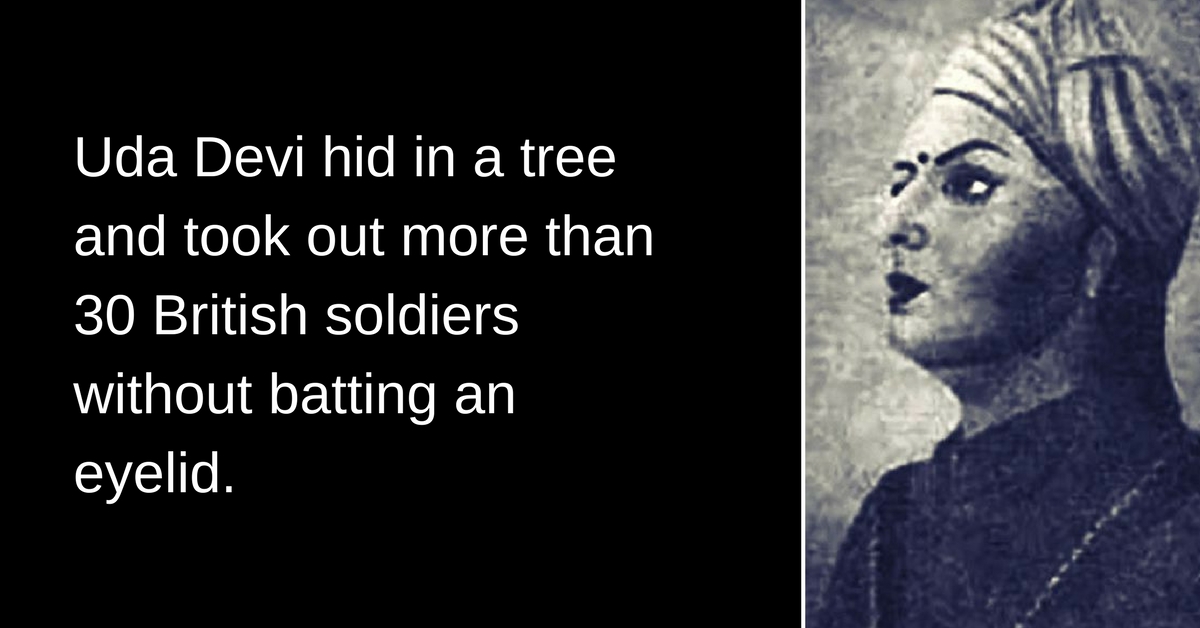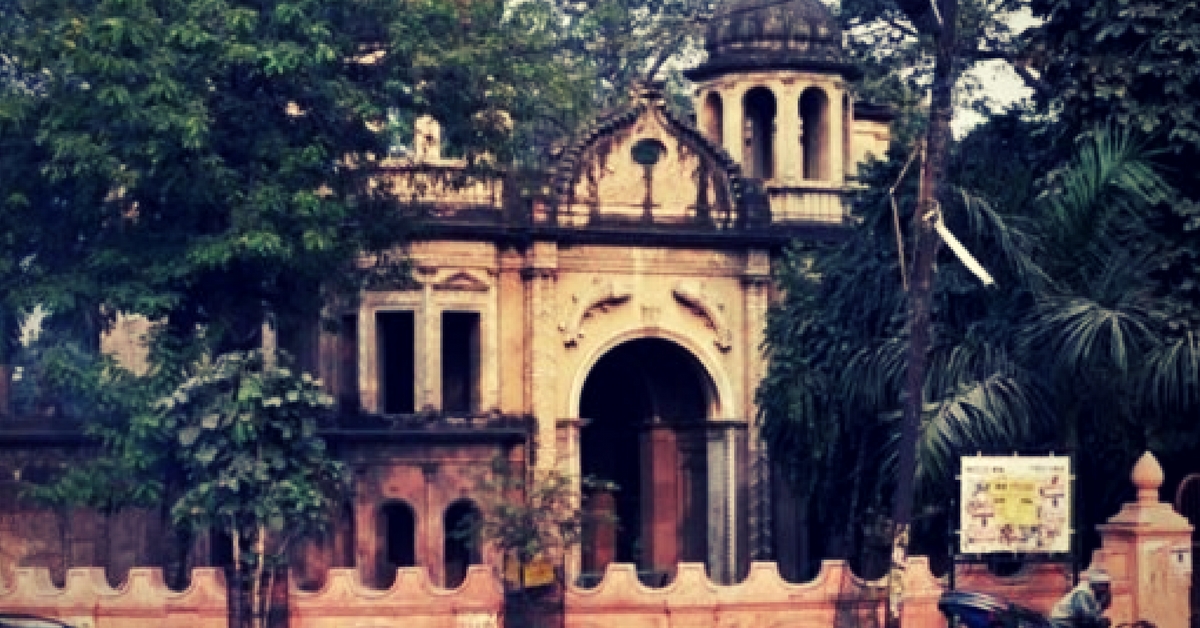This Lucknow Woman Singlehandedly Took down 30 British Soldiers in 1857!
Hiding in a tree, she carefully took aim at the approaching British.

The Indian Rebellion of 1857 against British rule saw some of the most ferocious battles fought across the nation. The soldiers were courageous and fought tooth and nail. While the revolt did not succeed, it went down in history as a righteous struggle.
Amongst all the illustrious freedom fighters, Uda Devi’s name stands out for leading one of the fiercest battles in Lucknow against the British.

Born to a Dalit family in Awadh, Uttar Pradesh, Uda Devi at an early age, recognised the dissent the local people showed against the British Raj. She decided to contribute to the cause, and approached Begum Hazrat Mahal to seek help, in order to prepare for the battle against the British.
Begum Hazrat Mahal was kind and helped Uda Devi form a woman’s battalion, which the latter would lead herself. Thus, when Awadh was attacked by the British, Uda Devi and her husband became a vital part of the armed resistance.
The Battle in Sikandar Bagh

In autumn 1857, north India was in a state of practical anarchy. A general revolt against the growing authority of the British East India Company consumed the cities of Delhi, Jhansi and Kanpur.
In Lucknow, a small British garrison clung stubbornly to life at the Residency (a collection of buildings) on the banks of the Gomti River.
Surrounded by rebels and bereft of adequate supplies, the small British contingent teetered on the edge of annihilation throughout the summer of 1857.
In November, General Colin Campbell broke through the enemy lines and managed to save the trapped garrison. This was the ‘Second Relief of Lucknow’, during which Campbell’s 93rd Highland Regiment advanced along the Southern bank of the Gomti, proceeding toward the Palace of Sikandar Bagh.
Here, the rebels fought desperately, after fortifying their position. A pitched battle ensued, leaving over 2000 rebels and soldiers dead, after a fierce hand-to-hand combat. It was during the battle that Uda Devi’s husband was killed. Enraged, the brave soldier decided to avenge his death.
On seeing the British army approach Sikandar Bagh, she climbed up a banyan tree, disguised as a man, and took aimed, killing 32 British soldiers.
Once the dust had settled, an officer noticed that many of the British casualties had bullet wounds that indicated a steep, downward trajectory.
The needle of suspicion naturally pointed to a sniper, who could be hidden in the nearby trees. British officers fired at a nearby pipal tree, and a rebel fell out of the tree, dead, her body riddled with bullet wounds. Upon investigation, it was found that the rebel was, in fact, Uda Devi.
The British were shocked when they realised the soldier was a woman. It is said that even British officers like Campbell bowed their heads over her dead body, in recognition of her bravery.
Uda Devi is indeed an inspiration, especially to women from non-dominant castes. Befittingly, on November 16th each year, the members of her Pasi caste gather at the site of her fall and celebrate her as a brave rebel, who defied all odds to take British lives, for a cause. It has been over a century since she was martyred, yet the memory of her sacrifice is kept alive by her community, which celebrates her unwavering and courageous spirit.
Uda Devi is also one of the inspirations behind an all-women battalion, of the Uttar Pradesh Provincial Armed Constabulary. The government is keen on recruiting women from OBC and Dalit communities in these battalions.
You may also like:- The Forgotten Story of Rani Abbakka Chowta, the Fearless Warrior Queen of Tulu Nadu
The women PAC battalions will help the government in crowd control, and during agitations where the participants are mostly women. The government is currently identifying land in Uttar Pradesh, where centres for training these women cops can be built.
The raising of women PAC battalions is an excellent step towards empowering the women from the weaker sections of society, and it is only fitting, that one of the units, derives its name from a ‘Dalit Veerangana’ like Uda Devi.
Like this story? Or have something to share? Write to us: [email protected], or connect with us on Facebook and Twitter.
NEW: Click here to get positive news on WhatsApp!
This story made me
- 97
- 121
- 89
- 167
Tell Us More
We bring stories straight from the heart of India, to inspire millions and create a wave of impact. Our positive movement is growing bigger everyday, and we would love for you to join it.
Please contribute whatever you can, every little penny helps our team in bringing you more stories that support dreams and spread hope.



















